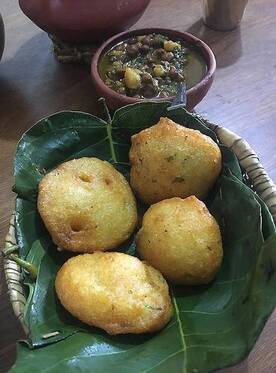Source – thehindu.com
In the smorgasboard of regional cuisines in India, Jharkhand was considered a hold out, with neighbouring Odisha and Bihar towering over its indigineous cuisine. Aruna Tirkey, a rural development professional, is determined to change this.
In 2016, on Kanke road in Ranchi, Jharkhand’s capital city, Tirkey opened a restaurant Ajam Emba, which means tasty food in Kudukh, the language of the Oraons, an ethnic group in the area.
In my recent travels in Jharkhand during the Assembly polls, the restaurant came highly recommended if I wanted to try out traditional Adivasi food.
Tirkey, who worked for the United Nations for some time, said that she opened the restaurant as she felt there was a need to establish Adivasi cuisine in pulic conciousness. She has not only revived some old recipes and dishes, but has also experimented with local produce.
Traditional Adivasi food has a healthy infusion of locally found vegetables, poultry, fish, herbs and grains.
Dishes such as Ragi Chilka (ragi is locally known as madua), rice Chilka (a kind of crepe) is served along with black chana, as are semi dry vegetables made of the local flower Sanai. Country chicken and Getu Machchli fish curry is served with traditional red rice with beng saag chutney as an accompaniment.
If you’re looking for Jharkhand’s signature dish, Dhuska, a medu vada like preparation served with black chana and potatoes, Ajam Emba is the place to go. In her experiments, Tirkey has tried Ragi Momos and rice tea, both a big hit with young people looking for newness.
“I felt for a long time that Adivasi food had to be established in its own space. We got Jharkhand in 2000, and it was high time that our food was made familiar to those who had no idea about it, and also provide a space for Adivasis living in Ranchi to have a taste of home,” she said.
She bootstrapped the venture and today has a kitchen staff of five and a similar number of wait and front office staff. When the government wanted to hold a skill development workshop on cooking, Tirkey was asked to train interested students in the art of Adivasi cooking.
“We have over 900 herbs in Jharkhand that are good for health and have medicinal value; many of these are amalgamated into the cuisine. I am trying to revive the use of these in day-to-day food as well,” she said.
“Jharkhand, as a state in its search for culturally distinct symbols, since its formation in 2000, needs to promote Adivasi food and assert ownership,” she said, adding that “this will, in future, also change the image of tribal communities in public consciousness.
